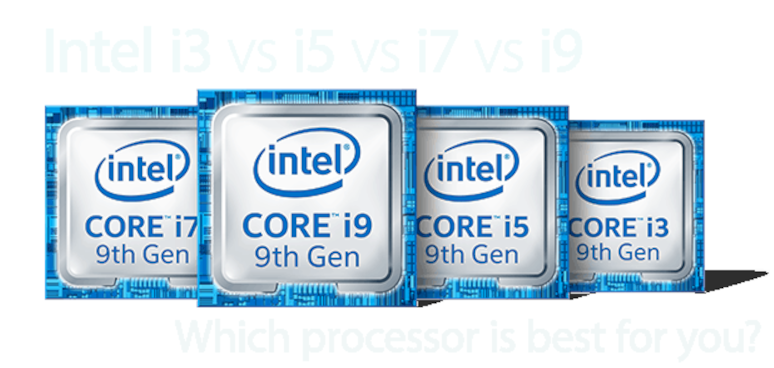Thinking of upgrading your PC or buy a computer, but not sure which powerful Intel processor family is right for you? Here’s how to choose.
Intel’s Core i7 and Core i9 line of processors are packed with powerful options. Most can handle almost any task you throw at them in the blink of an eye. But Intel offers plenty of them, and to make matters worse, they’re very similar.
| Intel core i7 | Intel core i9 | |
 | 421.92 $ | 599.97 $ |

Intel Core i7 and Core i9 Processors : Specifications
Almost every chip in the Core i7 or Core i9 is designed for robust performance, well beyond the core counts and capabilities of the company’s 10th Gen Core i5 or Core i3 processors.
They are powerful chips, designed from the ground up for content creators and hardcore gamers to get the most out of what Intel has to offer in the consumer desktop, laptop, and HEDT markets.
For starters, the Core i7 and Core i9 lines (in the mainstream desktop and mobile families) come with integrated graphics processors (IGPs), although Intel also offers isolated models without IGPs. Those without IGP are designated with an “F” suffix. (The entire Core X series never offered IGP on chips and are the “F” exception; they all end in “X” or “XE”. You must use these chips with a video card.)
Non-F chips will carry Intel UHD Graphics 630 IGPs inside the 10th Gen chips.
Next are consumer desktop chips which have a “T” at the end of the model number. These represent what Intel calls its line of “power-optimized” processors that run at lower powers for smaller or thermally stressed PCs.

And there is “K”: This letter in one of the SIM card models means that the hearts are unlocked by overclocking. “K”, “KF”, “KS” desktop or “HK” mobile chips can be overclocked as you wish.
“S” indicates a rare special or limited edition CPU, while “H” and “HK” both denote high-powered variants of Intel laptop processors. Intel’s Core i9 laptops are only available in H variants; you can see much less powerful Core i7 processors in the U-series, aimed at thin and light laptops.
Overall, you’ll find a wider variety of Core i7 processors occupying the laptop and mobile market, while the Core i9 stack is geared more toward desktop and HEDT offerings.
Gaming : Do You Need a Core i7 or a Core i9

For most gamers, core i7 and i9 are exaggerated and not worth buying because of their very high prices compared to core i3 and i5. Indeed, while having a core i7 or i9 is great for productivity tasks and content creation, few games know how to take advantage of more than four cores at once. So you don’t need a core i7 or i9 for gaming; an i5 will suffice.
Intel Core i7 vs Core i9 : Which processor reigns supreme?
When it comes to Core i7 vs Core i9, the differences between the two don’t explicitly make one “better” than the other in all areas. Rather, it all depends on which rig best suits your power needs, your budget, and the type of work you plan to do most often.
The i9 line is Intel’s mainstream favorite, representing the pinnacle of what Intel can do in desktops or laptops, while the more modestly priced i7 is favored by Gamers and multimedia content creators.
See also:
